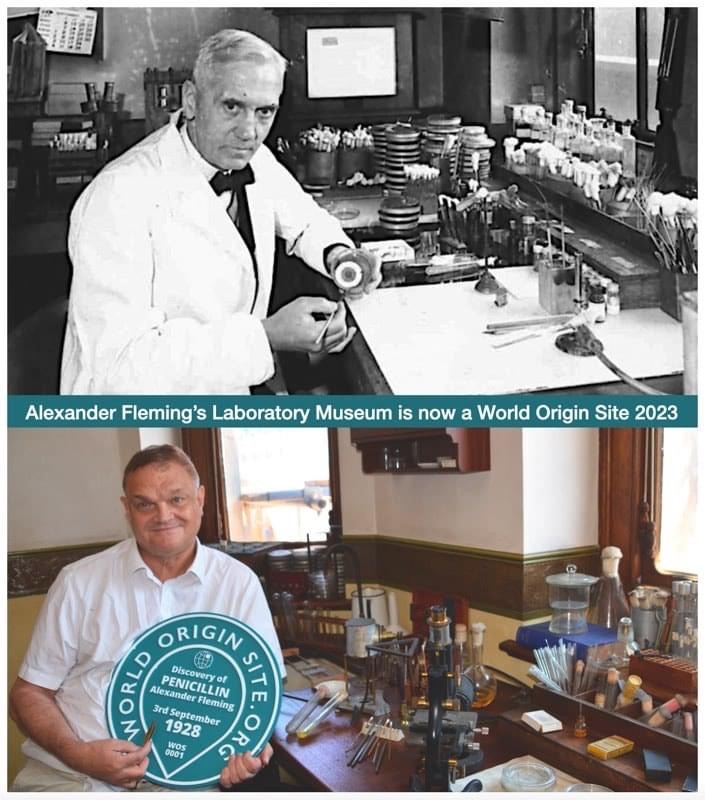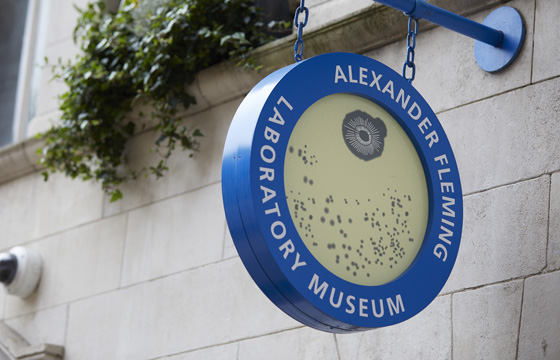On September 21st, we celebrate the 30th anniversary of The Alexander Fleming Museum, a remarkable institution in Paddington, dedicated to preserving the legacy of the man behind the discovery of penicillin.
Earlier this month, we marked the 95th anniversary of the discovery of penicillin, a breakthrough that changed the course of medical history.
It was on September 3, 1928, that Sir Alexander Fleming stumbled upon the world-changing properties of penicillin. This serendipitous discovery set the stage for modern antibiotics, saving countless lives and revolutionizing medicine.
In 1993, The Alexander Fleming Museum opened its doors to the public, providing an invaluable window into the life and work of this pioneering scientist.
Located in the heart of Paddington, this museum has been a source of inspiration for visitors from around the world. It’s exhibits include laboratory equipment, personal memorabilia, and insightful displays, offering a captivating journey through Sir Alexander Fleming’s life and achievements.
Behind the scenes, the museum is guided by the steadfast dedication of Curator Kevin Brown and a team of passionate volunteers. Their unwavering commitment to the museum’s mission ensures that Sir Alexander Fleming’s legacy continues to inspire and educate. Recently, the Museum received an accreditation from the World Origin Site Organisation, recognising the museum as truly unique.
As we celebrate 30 years of The Alexander Fleming Museum and the 95th anniversary of penicillin’s discovery, we invite you to be a part of this remarkable journey. Visit the museum, immerse yourself in the life and work of Sir Alexander Fleming, and witness the enduring legacy of a man whose curiosity and dedication changed the world. Whether you’re a history enthusiast, a science buff, or simply curious, there’s something for everyone within its walls.
If you live locally and share a passion for history and science, consider becoming part of the Alexander Fleming Museum family by volunteering your time. Your contribution can help preserve the legacy of Sir Alexander Fleming and inspire future generations of scientists and researchers. For more information email kevin.brown5@nhs.net

